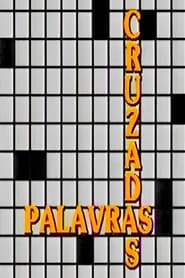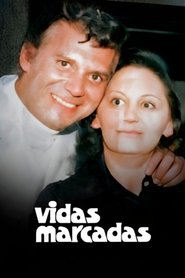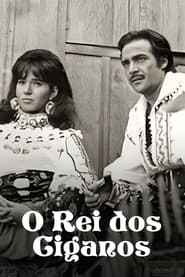Soap TV Series - Page 124
-
Ciúme
1966
Ciúme
1966
-
Pelito
1982
Pelito
1982
-
Magic
2017
Magic
2017
Songkrod and Auerkarn were a loving couple but then the bad guys killed Songkrod's family and kidnapped him. Auerkarn is sad that he’s gone. She's a doctor now but has not moved on from Songkrod. Songkrod returns after being trained and brainwashed by the bad guys, he identifies as Kim now. He came back to use magic to get revenge. When Auerkarn met Kim, she was confused because he looks like her former lover but he acts very differently. They slowly start to fall in love again. -
I de beste familier
1994
I de beste familier
1994
Offshore is a Norwegian soap opera. We follow the Wahrings at Sanden beach hotel. It originally aired on NRK from 23 Oktober 1994 to 12 Mars 1995. -
The Unisexers
1975
The Unisexers
1975
The Unisexers is an Australian television soap opera made by Cash Harmon Television for the Nine Network in 1975. The series was produced by the same company that had made the smash hit soap opera Number 96. The Unisexers focused on a group of young people - both male and female - living together in a commune arrangement in the old house of a retired elderly couple whose children had left home. The youngsters set up a business making denim jeans to be worn by both sexes, hence the title of "Unisexers". The cast included: Tina Bursill, Josephine Knur, Steven Tandy, Tony Sheldon, Delore Whiteman, Walter Pym, Jessica Noad and Patrick Ward. The series, hampered by an early evening time slot, failed to find an audience and was cancelled and removed from the television schedules after three weeks on air. A one hour premiere episode and fifteen thirty-minute episodes were broadcast. -
Palavras Cruzadas
1987
Palavras Cruzadas
1987
-
闪婚后,我被总裁老公宠上天
2024
闪婚后,我被总裁老公宠上天
2024
-
Teenage Bride
2006
Teenage Bride
2006
Amelda (Amel) and Fabian (Abi) have been matched since they were very young. Now Amel is in high school, very obsessed with matchmaking, she is sure that her soul mate is a handsome, romantic man. The same thing happened to Abi, who was very sure that his soul mate was a beautiful and elegant woman. However, it turns out that Abi and Amel eventually met at Amel's school, with Abi as a new teacher. But unlike Abi's expectations, it turned out that Amel was too ignorant and childish. On the other hand, Amel was also disappointed, because Fabian was far from being the prince of her dreams, just a teacher who was stiff and curt when spoken to. -
Vidas Marcadas
1973
Vidas Marcadas
1973
-
El elegido
2011
El elegido
2011
-
O Rei dos Ciganos
1966
O Rei dos Ciganos
1966
-
Love Plan, Evil Plan
2013
Love Plan, Evil Plan
2013
star 6.5A story about an orphan named Korya who turns out to be the long lost daughter of Noppadara Siwawong, the great-great grandchild of a king. During the journey to be reunited with her mother, the car she was in gets into an accident and the other orphan traveling with her, Payia, uses this chance to steal her identity. Meanwhile, Id, a young man Korya met previously and did not get along with, finds her and takes her to the hospital. When Korya wakes up, she has lost her memory, so Id, for fear of her safety, pretends that she's his soon-to-be fiancée and keeps her close. Will Korya ever recover her memory, and to what lengths will Payia go to keep her secret? -
Suhaga Sindura
2022
Suhaga Sindura
2022
All Hema wanted was to create a name for herself in the big city. But upon her arrival, she is caught in the middle of Aditya and Malini's love story. -
我的妈妈是天使
2012
我的妈妈是天使
2012
-
玫瑰的绽放
2024
玫瑰的绽放
2024
-
Danskebåten
2018
Danskebåten
2018
Reality show that shows the whole spectrum of life on board Stena Saga between Oslo-Frederikshavn, from the people in the engine room to the captain of the bridge, and the rest of the crew who work to ensure that the passengers have the best possible journey. -
Our Private World
0000
Our Private World
0000
Our Private World is an American serial. The storyline started on As the World Turns, with Lisa boarding a train to Chicago and the announcer encouraging the audience to watch the spin-off. Upon arriving, Lisa took a job in the admitting room of the local hospital and met her wealthy future husband John Eldredge. A few months after the demise of the series, Fulton returned to As the World Turns. -
Varalakshmi Stores
2019
Varalakshmi Stores
2019
Ramanna and his brothers run Varalakshmi Stores, while his wife, Saraswathii, keeps the family united. Will this bond of love and trust last forever?

















